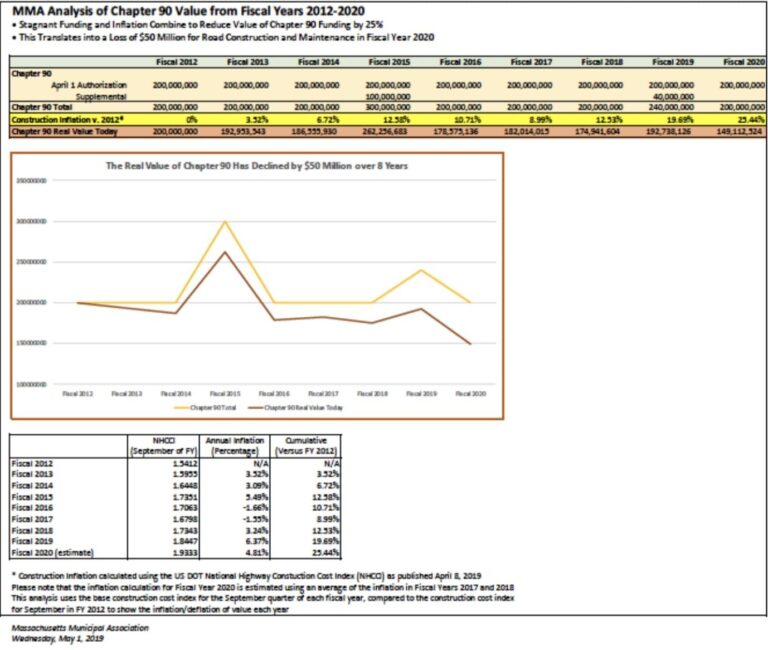The Massachusetts Department of Transportation (MassDOT) has officially approved a comprehensive $18.5 billion Capital Investment Plan to guide the state’s transportation infrastructure development over the next five years. The multi-year plan, spanning Fiscal Years 2026 through 2030, aims to enhance accessibility, resilience, and reliability across Massachusetts’ transportation networks. This significant investment underscores MassDOT’s commitment to supporting economic growth, improving connectivity, and ensuring safe and sustainable travel for all residents and visitors. The plan details funding allocations for planning, construction, and maintenance projects that will shape the future of the Commonwealth’s transportation system [[1]][[2]].
Table of Contents
- MassDOT Unveils Ambitious Infrastructure Upgrades Across the State
- Focused Investments Target Public Transit Modernization and Accessibility
- Enhanced Road Safety Measures to Reduce Traffic Fatalities and Congestion
- Recommendations Emphasize Sustainable Funding and Community Engagement
- To Conclude
MassDOT Unveils Ambitious Infrastructure Upgrades Across the State
Massachusetts is set to transform its transportation landscape with the approval of an $18.5 billion capital plan spanning the next five years. MassDOT’s comprehensive strategy focuses on modernizing critical infrastructure to enhance safety, reduce congestion, and support sustainable growth across the Commonwealth. Key investments will be directed toward major highway repairs, bridge replacements, and expansion of public transit facilities, reflecting a commitment to long-term resilience and efficiency.
The plan emphasizes cutting-edge technology integration and environmental stewardship, featuring initiatives such as:
- Expansion of electronic toll collection systems to streamline traffic flow and reduce emissions.
- Upgrades to MassDOT’s travel data platforms to provide real-time updates and improve commuter experience.
- Enhanced support for multimodal transportation options including bike lanes and pedestrian pathways.
These projects aim to fortify Massachusetts’ infrastructure against future challenges while bolstering economic vitality across the state.
Focused Investments Target Public Transit Modernization and Accessibility
The newly approved capital plan allocates substantial funding toward revitalizing Massachusetts’ public transit infrastructure, ensuring systems are equipped to meet 21st-century demands. Emphasizing modernization, the initiative focuses on upgrading critical assets such as bus fleets, rail lines, and transit stations with state-of-the-art technology and environmentally sustainable designs. This transformative approach aims to improve service reliability, reduce travel times, and enhance rider experience across the Commonwealth.
Accessibility remains a top priority, with targeted investments designed to make transit more inclusive for all users. Enhancements will include:
- ADA-compliant infrastructure upgrades including elevators, ramps, and tactile signage;
- Expanded real-time information systems providing accessible transit updates;
- Improved station lighting and security features for safer travel;
- Deployment of new low-floor buses and trains to facilitate easier boarding.
These focused initiatives reflect MassDOT’s commitment to breaking down barriers, fostering equitable transit access, and supporting a resilient, future-ready transportation network.
Enhanced Road Safety Measures to Reduce Traffic Fatalities and Congestion
MassDOT’s ambitious $18.5 billion capital plan underscores a bold commitment to modernizing infrastructure with a sharp focus on improving safety for all road users. Key initiatives include implementing advanced traffic management systems and upgrading critical intersections to reduce collision points. The deployment of smart sensors and real-time monitoring technologies will enhance the department’s ability to respond swiftly to incidents and manage traffic flows more efficiently, directly addressing congestion hotspots and safety risks.
The plan also emphasizes a multi-faceted approach to safety through:
- Expanded use of high-visibility signage and enhanced roadway lighting to improve driver awareness during night and adverse weather conditions.
- Investment in pedestrian and bicycle infrastructure to protect vulnerable users and promote choice, safer modes of transportation.
- Increased funding for highway barrier upgrades and road surface improvements aimed at minimizing accident severity and mechanical failures.
Together, these efforts are projected to considerably reduce traffic fatalities while cutting down on peak-hour congestion, aligning MassDOT’s vision with national road safety goals.
Recommendations Emphasize Sustainable Funding and Community Engagement
The new $18.5 billion capital plan underscores the critical need for sustainable funding mechanisms that ensure long-term project viability without burdening future budgets. Experts recommend leveraging diversified revenue streams, including public-private partnerships and dedicated infrastructure funds, to maintain fiscal health over the next five years. These approaches aim to reduce dependency on volatile funding sources,providing a more stable financial foundation that supports ongoing maintenance and innovation.
Equally significant is fostering meaningful community engagement to elevate transparency and build public trust. Stakeholders advocate for expanded outreach initiatives that actively involve residents, local businesses, and advocacy groups in the decision-making process. By integrating community feedback through workshops,digital platforms,and town halls,MassDOT can ensure that projects not only meet technical requirements but also reflect the priorities and needs of the populations they serve. Key strategies include:
- Creating accessible forums for continuous dialog throughout the project lifecycle
- Implementing targeted communication campaigns to keep communities informed and involved
- Establishing advisory committees representing diverse demographic and geographic segments
To Conclude
With the approval of this $18.5 billion capital plan, MassDOT sets a robust course for the next five years, aiming to enhance transportation infrastructure across Massachusetts. As projects roll out, they promise not only to improve mobility and safety but also to support economic growth and environmental sustainability throughout the state. Stakeholders and residents alike will be watching closely as these initiatives take shape, shaping the future of Massachusetts’ transportation landscape. For ongoing updates and detailed project information, MassDOT’s online resources provide comprehensive tracking and public access to the plan’s progress.[3]

